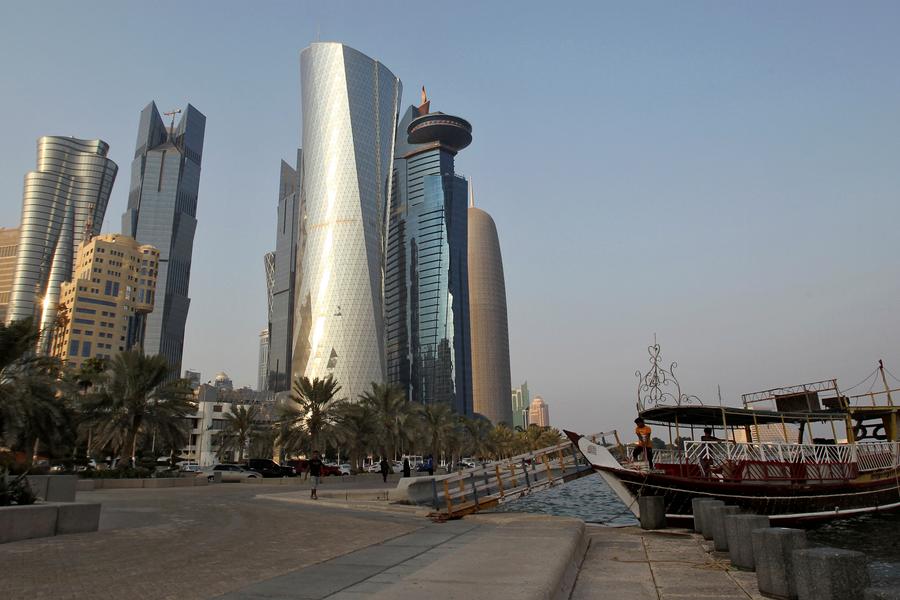Doha’s upcoming moves can be easily predicted like an open book as it has taken the same steps in similar previous crises. It is keen on spreading the propaganda of rejection and showing heroic TV stances that do not match with its capabilities and do not reflect the true decisions it intends to take.
We heard yesterday Qatar’s decision to reject the demands of the four boycotting countries, but do not believe what you have heard because Doha will secretly surrender later on. This is what Qatar did in its conflict with Saudi Arabia in 2013 and repeated it the following year.
Qatar has exaggerated its tenacious attitude on media, and again, through some mediators, it agreed later on to the demands behind closed doors. It knocked the door of the Emir of Kuwait, asking him again to intervene and stop the crisis on the diplomatic and borders levels.
When Doha agreed to meet all the demands that year, including silencing its al-Jazeera channel, it did not complain that it was a violation of its sovereignty. Emir of Qatar’s only condition back then was not to announce the details of the agreement. Indeed, Saudi Arabia kept it confidential until the last crisis broke out a few weeks ago and most of the information was revealed.
Today, authorities in Doha announced their rejection through media celebrations and propaganda. It would be good if Qatar sticks to its stances; however, you will hear soon, in a month or two, that it has sent secret mediators with a short message stating that Doha is ready to accept all 13 demands. Hypocrisy will be shown again!
Qatar cares about its appearance; it wants the world to see that it rejected the demands and then it will be ready to compromise behind the scenes. A Qatari source, well aware of the situation, advised me not to believe anything and said that Qatar would also be ready to get rid of its al-Jazeera channel and even fire a number of its employees. It would then announce selling the channel and the buyer would be one of its supporters.
In my opinion, it is wrong to include al-Jazeera in the demands. It is just a media tool for the government’s policy. Everyone knows that it is no longer influential.
The Qatari maneuvers will be repeated in a different way. Last time, the Emir promised to undertake commitments that are kind of similar to today’s demands.
The previous list also included the abstention from financing Saudi extremist religious groups, funding rebels against the government that are managed from abroad, paying Saudi clerics, academics and media figures hired by Qatari government to work against Saudi Arabia and waging media inciting campaigns, including al-Jazeera in addition to other demands.
Qatar has literally carried out its commitments, but in fact, it did not do so. Al-Jazeera has stopped criticizing Saudi Arabia for three consecutive years and was always praising Saudi officials, but at the same time, it opened two TV stations in London that carried out incitement against Riyadh, targeting in particular radical Islamic groups.
After al-Jazeera stopped criticizing Saudi Arabia, based on the agreement between the two governments, it dedicated most of the stations’ time to incite against Egyptian authorities.
Qatari authorities have also stopped paying Saudi nationals as per the previous agreement, but they opened new bank accounts for them through institutions affiliated to them and raised the number of those under the Qatari financial cover from tens to hundreds.
As for the demands to abstain from sheltering Saudi Islamic extremists on its territories, Qatar deported them to live in Turkey at its expenses up till today; there are also those who stayed in Qatar after being granted the citizenship!
In my opinion, this is a decisive crisis. Saudi Arabia is not alone as it is supported by Egypt, the UAE, and Bahrain, which grants it a stronger diplomatic position.
There are also other regional governments that have supported the boycotting countries, and their positions against Qatar will be expressed clearly in future diplomatic and economic meetings. All these countries insist on their position against the reconciliation and against accepting any commitment from the Doha regime as they want Qatar to feel the same danger it has caused to other governments in the region by insisting on funding terrorist and extremist groups.
